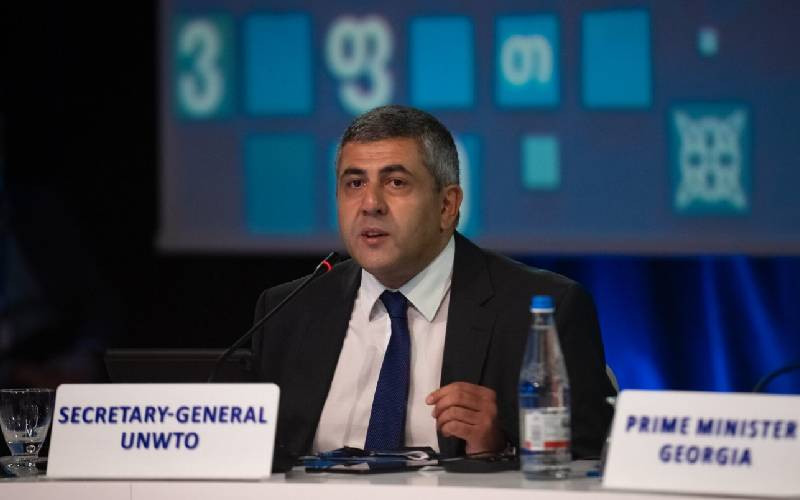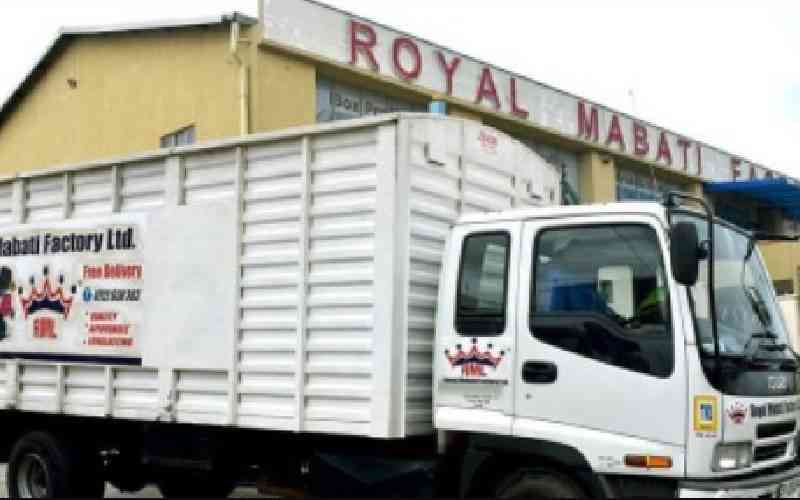By Kenneth Kwama
After what appeared like a failed bid to sell his projects to the board, BOC Kenya Ltd Managing Director John Kariuki finally threw in the towel in yet another story of boardroom intrigues.
For months, Kariuki had attempted without success to convince the board of BOC Kenya Ltd to support projects he believed were key to putting the company back on growth path.
After receiving Kariuki’s resignation letter in February, BOC Kenya’s Chairman John Kibe convened a board meeting immediately and after a short brief, gave the floor to Kariuki.
An insider says members listened, nearly mute and barely asking questions as Kariuki explained why he felt it was time to make his exit.
The board was stunned. They knew the profit margin had been thinning, but none had anticipated that Kariuki, who had by then served the company as an employee in different capacities for 19 years, would bow out.
What followed thereafter is a matter of conjecture, but an analysis of events at the industrial and medical gas company show that Kariuki’s exit was nigh.
 |
BOC Kenya’s core business include the manufacture of medical and industrial gases. Photo: File/Standard.
|
While the board has been unrelenting in its appreciation of Kariuki’s contributions, some directors were pretty uneasy with some of his decisions.
Some of his investment moves had over time seen profit margins ebbing — a fact that cast questions on his management credentials.
While confirming to Financial Journal that he had left the company, Kariuki declined to state the reasons.
"Its me who requested the board to let me go. The reasons are personal, and I don’t want to discuss them in the media," said Kariuki.
He referred FJ to the board’s chairman, Kibe for further information.
By last week, the tumult that had rocked the boardroom spilled over to the Annual General Meeting (AGM). Shareholders attending the AGM taunted Kibe, insisting to know the whereabouts of Kariuki.
"Kariuki and the company parted ways in an amicable manner. He left on his own volition," Kibe told shareholders.
Signs of trouble
Kariuki could have left on his own volition, but signs that trouble was brewing started showing on August 20.
Jonathan Narayadoo, a director who represents one of the firm’s largest shareholders, African Oxygen Ltd (Afrox) was the first to resign. Three months later, M. Yan, another Afrox representative to the board, also quit.
BOC, the parent company of BOC Kenya, has a 56 per cent shareholding in Afrox Ltd. Afrox manages BOC Group’s operations in Kenya, Nigeria and Zimbabwe.
Sources intimated that the directors’ departure betrays their discontent at some of the decisions by management.
Those that remained put were said to be unanimous in one thing: Something had to be done urgently to forestall the firm’s declining profitability. The numbers bore them out.
For example, the firm posted a 21 per cent decline in pre-tax profit from Sh295.1 million to Sh231.6 million last year.
The company also recorded a drop in pre-tax profit from Sh183m in the first six months of 2008, to Sh146m for the same period last year.
According to our source, the former Chief Executive felt the company’s performance was an indicator that its core business of selling medical and industrial gases was approaching maturity and it needed to grow its offerings to return to the same level of profitability investors were used to.
Kariuki was reportedly keen on carbon dioxide, which he believed offered opportunity to push up the company’s revenues and create shareholder value.
It is a belief he had nurtured since 2005, when the company set aside Sh400 million to finance the acquisition of carbon dioxide manufacturer, Carbacid.
The move was calculating, especially in the face of the expanding soft drink and alcohol industries — the major consumers of carbon dioxide.
East African Breweries Ltd (EABL) was planning to launch Alvaro, Softa was catching up and Coca-Cola had its nose pressed on the windowpanes with Novida.
"If you want to know how important carbon dioxide is to these industries, remember it is the gas you belch out every time you drink a soda or alcohol, says our source who is familiar with Kariuki’s thinking then.
Kariuki, however, says the issue of carbon dioxide is not true as BOC Kenya is a big business with several other profitable options.
"I don’t speak on behalf of BOC. Please contact the chairman if you want more information, but I can tell you the issue about carbon dioxide is not right," he said.
BOC produces industrial, medical, and scientific gases, refrigerants, welding equipment and consumables and safety equipment. Revenues from other sources comprise less than eight per cent of the total results of the group.
Unlike BOC, Carbacid, the manufacturers of carbon dioxide, recorded a 51 per cent growth in operating profits for the first six months of its financial year to Sh155 million. Carbacid Chairman, Maina Wanjigi, attributed to increased sales that pushed revenues by 17 per cent to Sh323 million.
BOC Kenya’s attempt to bag Carbacid grew into a protracted struggle — a near fiasco that led to shares of both companies being suspended from the Nairobi Stock Exchange, after market regulator, Capital Markets Authority (CMA) ruled against the takeover bid.
Since then, Carbacid, the only manufacturer of carbon dioxide in the region, has been looking up. It has also been building strong customer loyalties that stretch across beer and soft drinks in Kenya and the wider East African region.
Change of tack
Last year, BOC Kenya announced it was pulling out of the Carbacid deal. In an apparent change of strategy, Kariuki said BOC Kenya should instead use the Sh400 million set aside for the acquisition to set up its own carbon dioxide operations.
And when some board members were not receptive of the idea, Kariuki was heartbroken.
"It made him feel like the board was not supportive of his programmes," says another source knowledgeable about the issue who requested anonymity.
Last week, BOC Kenya advertised the Managing Director’s post in sections of the media. Kennedy Jacojwang has been acting as MD as the company awaits a substantive posting.
The gas maker attributes the falling profits to expensive raw materials and high cost of power and shrinking market share has also been shrinking due to new competition.
Consumers such as Nairobi Hospital, and other institutions, have installed production units and may be considered as competitors, especially in the bulk oxygen and nitrogen supply niche.
This is among factors that have kept the company’s sales almost flat, eating into some of its customers and fanning the dwindling demand for products.
The recent state of the economy, which has not been supportive of manufacturing businesses, has not helped matters either.
—[email protected]
 The Standard Group Plc is a multi-media organization with investments in media
platforms spanning newspaper print operations, television, radio broadcasting,
digital and online services. The Standard Group is recognized as a leading
multi-media house in Kenya with a key influence in matters of national and
international interest.
The Standard Group Plc is a multi-media organization with investments in media
platforms spanning newspaper print operations, television, radio broadcasting,
digital and online services. The Standard Group is recognized as a leading
multi-media house in Kenya with a key influence in matters of national and
international interest.
 The Standard Group Plc is a multi-media organization with investments in media
platforms spanning newspaper print operations, television, radio broadcasting,
digital and online services. The Standard Group is recognized as a leading
multi-media house in Kenya with a key influence in matters of national and
international interest.
The Standard Group Plc is a multi-media organization with investments in media
platforms spanning newspaper print operations, television, radio broadcasting,
digital and online services. The Standard Group is recognized as a leading
multi-media house in Kenya with a key influence in matters of national and
international interest.










